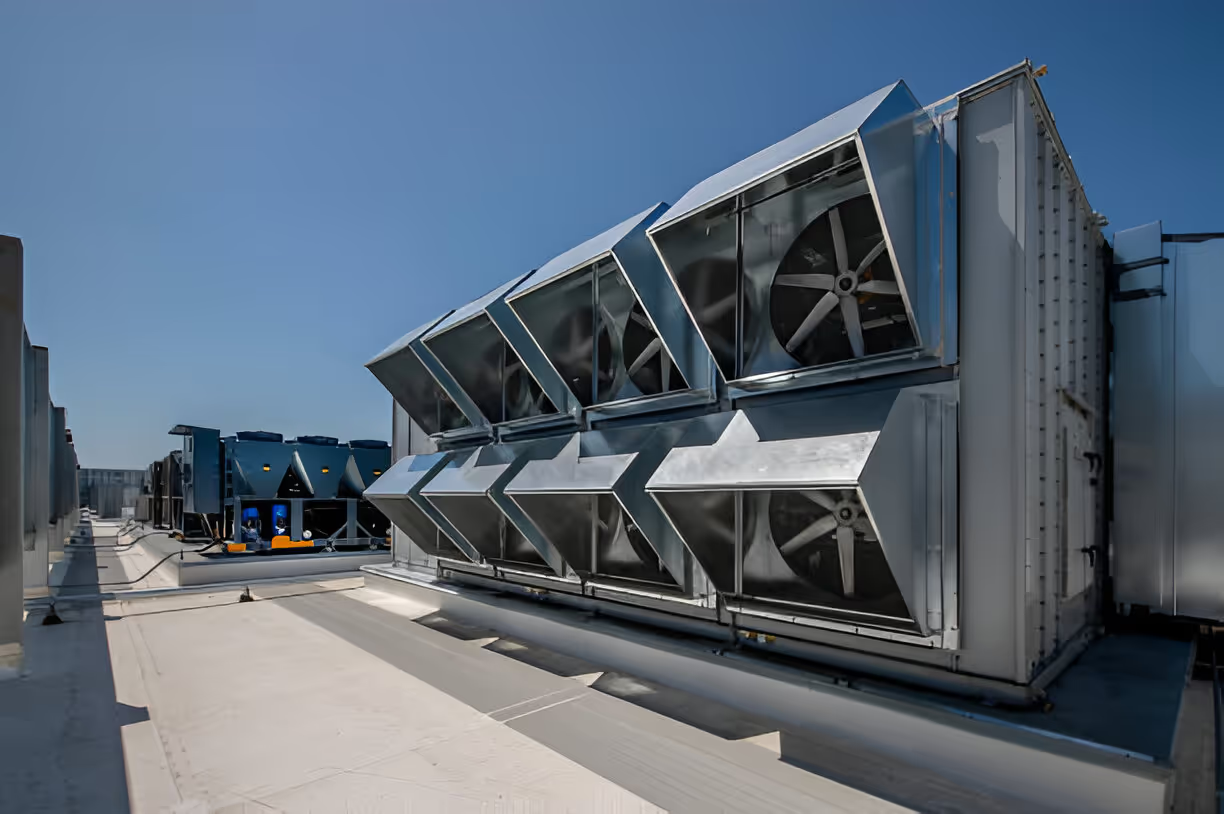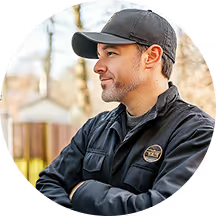HVAC Installation in Glen Cove, NY
Upgrading or installing a new HVAC system is a major decision for Glen Cove homes. With hot, humid Long Island summers and cold winters, the right system improves year-round comfort, lowers energy costs, and protects indoor air quality.

Common HVAC installation types for Glen Cove homes
- Central air conditioning and furnace systems
- Best for homes with existing ductwork and multi-zone layouts. Modern high-efficiency condensing units and variable-speed air handlers balance comfort with efficiency.
- Heat pumps (air-source and cold-climate models)
- Increasingly popular in the region due to efficiency for both heating and cooling. Advanced models perform well in colder temperatures and may qualify for local/state rebates.
- Ductless mini-split systems
- Ideal for older Glen Cove houses without ductwork, room additions, or finished basements. Provide zoned control, minimal disruption during install, and high seasonal efficiency.
Initial consultation and home assessment
Every proper installation starts with an on-site consultation. Typical assessment steps include:
- Visual inspection of existing equipment, ductwork, attic and crawl spaces.
- Review of insulation levels, window exposure, and building orientation—factors that impact system size.
- Identification of potential corrosion or siting concerns for outdoor units due to coastal salt air common along the Glen Cove shoreline.
- Discussion of comfort priorities, thermostat preferences, budget, and long-term goals like electrification or smart home integration.
This visit informs the load calculation and final equipment selection so the system matches your home, not just a rule-of-thumb estimate.
Load calculations and system selection
Accurate sizing is critical. Installers use Manual J load calculations to determine heating and cooling requirements room by room. Related considerations:
- Manual S guides proper equipment selection based on calculated loads.
- Manual D for duct design if new ductwork or major changes are needed.
- Oversized equipment causes short cycling, reduced dehumidification, and higher operating costs. Undersized equipment fails to maintain comfort on peak days.
- Efficiency ratings to consider: SEER for cooling, HSPF for heat pumps, and AFUE for furnaces. In Glen Cove’s humid climate, higher SEER and variable-speed blowers improve comfort and efficiency.
Ductwork, ventilation, and thermostat integration
Many Glen Cove homes present ductwork challenges: older, leaky ducts, poorly balanced airflow, or insufficient return paths. Common solutions:
- Duct sealing and insulation to reduce energy loss.
- Duct resizing or partial replacement, especially when adding high-efficiency equipment.
- Adding or rebalancing returns and supply registers for even distribution across floors.
- Ventilation upgrades and filtration options to improve indoor air quality in humid months.
Thermostat and control integration:
- Smart thermostats with zoning support give better control and can reduce runtime and energy bills.
- Heat pump systems often require specific thermostat compatibility; installers will ensure proper wiring and programming.
- Zoning dampers and multiple thermostats are practical in multi-story or older Glen Cove homes with varied sun exposure.
Permits and code compliance
Permits and inspections are part of professional HVAC installation:
- Local permits ensure work follows Nassau County and Glen Cove building codes, refrigerant handling regulations, and safety standards.
- Licensed technicians pull permits, arrange inspections, and document compliance.
- Outdoor unit placement must consider property setbacks, airflow clearance, noise ordinances, and corrosion protection for coastal installations.
Typical step-by-step installation timeline
Install timelines vary by system complexity, but a common sequence looks like this:
- Preparation and site protection: cover floors, secure access, and stage equipment.
- Removal of existing system (if present) and disposal per local regulations.
- Installation of new outdoor unit, indoor air handler or furnace, and refrigerant lines or ductwork modifications.
- Electrical connections, gas connections if applicable, and thermostat wiring.
- System charging, airflow balancing, and commissioning.
- Final inspection coordination with local authorities and homeowner walkthrough.
Smaller installations (like a single mini-split) can often be completed in a day. Whole-house replacements with ductwork improvements typically take several days.
Post-install testing, commissioning, and handoff
A professional installation includes rigorous testing before handoff:
- Refrigerant charge and superheat/subcooling checks for correct performance.
- Airflow measurements, temperature differentials, and duct leakage testing when relevant.
- Combustion and carbon monoxide testing for gas furnaces.
- Thermostat configuration, smart thermostat setup, and homeowner training on scheduling and features.
- Delivery of system documentation, warranty information, and maintenance schedule recommendations.
This testing ensures peak efficiency, safety, and that the system meets the calculated design goals.
Brand options, warranties, and financing
Glen Cove homeowners typically choose among reputable brands such as Daikin, Goodman, Bosch, Rheem, and Amana. Considerations when choosing a brand:
- Warranty length and what it covers for parts and compressors.
- Local serviceability and availability of replacement parts.
- Efficiency ratings and available features like variable-speed compressors or enhanced filtration.Financing options and local rebates can make higher-efficiency systems more affordable. Heat pump rebates and energy incentive programs may be available for qualifying installations; check eligibility and documentation requirements during the planning phase.
Why professional installation matters in Glen Cove
Quality installation affects comfort, operating cost, and equipment life. In a coastal New York community:
- Proper siting and corrosion mitigation for outdoor units preserve long-term reliability.
- Correct sizing and ductwork reduce humidity problems in summer and cold spots in winter.
- Code-compliant installation protects property value and ensures passing of inspections during resale.
Maintenance advice after installation
- Replace or clean filters regularly; frequency depends on filter type and home conditions.
- Schedule annual or biannual tune-ups for cooling and heating seasons.
- Keep outdoor units clear of debris, snow, and vegetation; coastal homes should rinse salt buildup periodically.
- Monitor smart thermostat reports for runtime trends that may indicate developing issues.
A professionally installed HVAC system matched to your Glen Cove home delivers consistent comfort, lower utility bills, and better indoor air quality. Knowing the full process—from load calculations and permits to commissioning and maintenance—helps you make confident, informed decisions when selecting and installing your next system.
Customer Testimonials
Hear directly from homeowners who trust Bobby O’s HVAC Inc. for fast response times, honest service, and lasting comfort.











